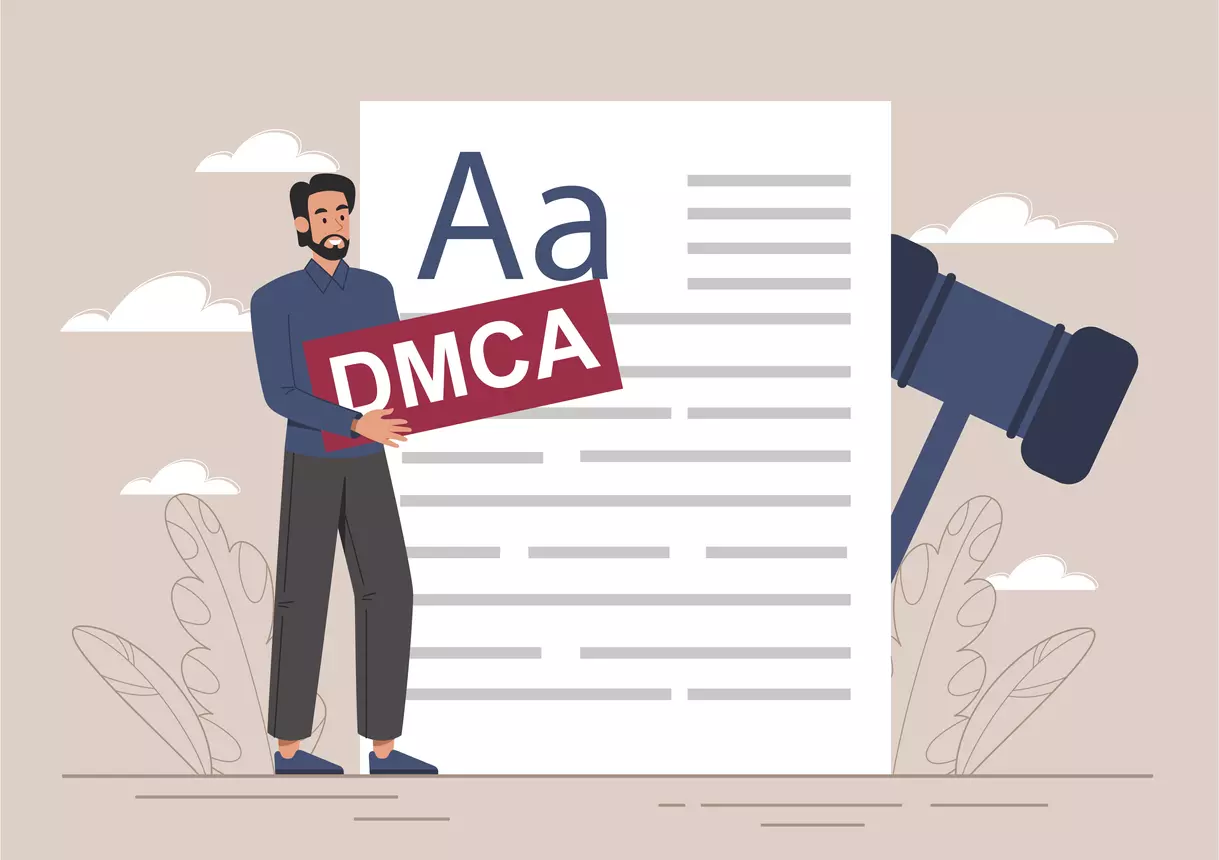If you sell your designs or other creations on online marketplaces, they’re at risk of being stolen unless you take measures to protect them. Every online vendor should be aware of how a DMCA letter can keep your intellectual property — and finances — protected.
It’s also essential to know how to respond correctly when you suddenly find that the designs you’ve posted for sale online have resulted in a DMCA letter addressed to you.
Understanding Your Notice: What is a DMCA letter?
A DMCA letter, also called a DMCA notice, is a letter notifying a company or person that they are selling or hosting copyrighted material. A letter serves as a notice that the responsible person needs to remove the copyrighted material right away. If they refuse to remove the material within 10 days of receiving a DMCA letter, the internet service provider can remove it for them.
DMCA stands for the Digital Millennium Copyright Act. This act was created in 1998 and helps protect digital creations from copyright violations.
The Key Benefits of a DMCA Letter
A DMCA letter is how you protect your ideas when they’ve been stolen by someone else.
Suppose that you sell your original artistic creations through an online marketplace. To sell your work, you need to upload photos so that potential buyers can see what you have for sale.
If someone else copies these photos and uses them or copies your designs, you can send them a DMCA letter. This legal notice will force them to remove the intellectual property they’ve stolen from you.
Examples of property protected by the DMCA include:
- Writing (books, poems, articles, reviews)
- Images (photos, digital art)
- Videos
- Audio files
The DMCA can also extend to protect software you’ve developed as well as the property of a business, like content posted on a company’s social media pages.
Creating a DMCA Letter
If you’ve discovered that someone has stolen your work and posted it online, you can send a DMCA letter directly to the website hosting the content. The material doesn’t need to be copyrighted, but copyright can help in the event of further legal trouble.
There’s no template or form for a DMCA letter, but it does need to contain specific information. You’ll need to include:
- Identifying information, like URL and content name
- Information on your original content, including URL
- Your contact information
- A clear statement that all information in the letter is correct
- A note that your letter is in “good faith”
- Your signature
In addition, you need to note in the body of your letter that “under crime of perjury,” the writer (you or your lawyer) has the right to communicate on behalf of the copyright holder. In this context, that can mean the owner of the property, even if the material in question isn’t actually copyrighted.
A DMCA letter is fairly simple, but it’s essential to include these pieces of legal jargon so it will be legally binding. If you want to guarantee that your letter will be successful, it’s best to hire a copyright lawyer to draft the letter on your behalf.
How do I handle a DMCA letter I received?
DMCA letters are legally binding. If you’ve received one, it means that someone believes you’ve stolen their idea or reposted content they’ve created without permission.
What you’ll need to do after receiving a DMCA letter depends on the context. If you believe the writer is correct, you should remove the material. If you believe the author doesn’t have the right to ask you to remove content or you’re being accused of stealing ideas you believe to be original, you should contact a copyright attorney right away to discuss your next move.
Dallas Copyright Lawyers Can Help You Address Copyright Concerns
Copyright issues can lead to serious legal trouble, so it’s best to take action quickly. The Sul Lee Law Firm is a Dallas, TX, firm with experience in trademarks, copyrights, and patents. Give us a call to speak with a copyright lawyer in Dallas today.

